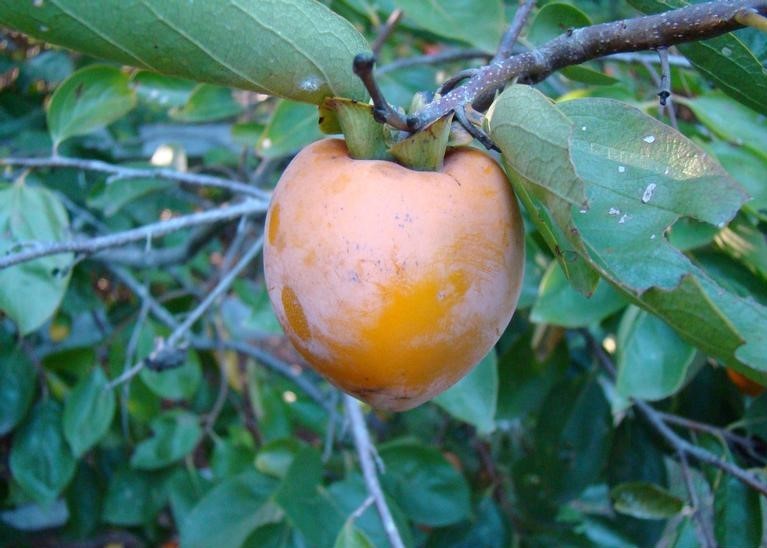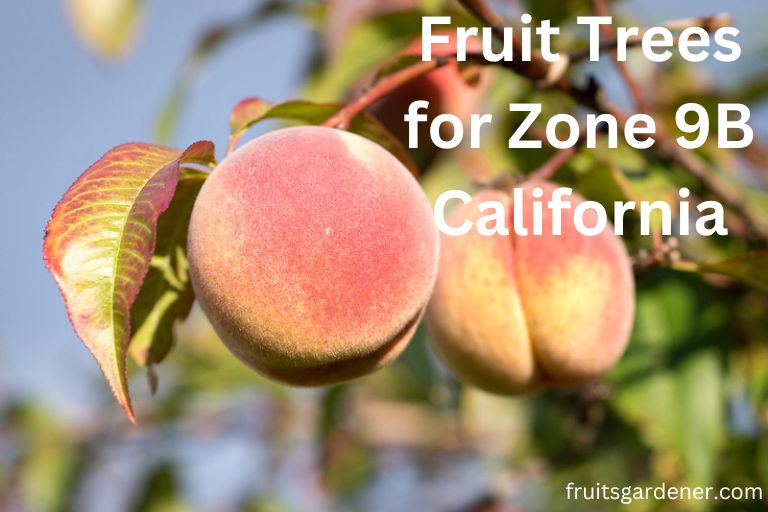This content is for informational purposes only and does not constitute financial, legal, or professional advice. Always consult a certified professional before making financial or investment decisions. As an affiliate, we may earn a commission from qualifying purchases made through links in this post at no extra cost to you.
The benefits of self-pollinating fruit trees are many. They include the ability to produce fruit without another tree nearby, and the fact that they are less likely to be damaged by high winds and heavy rain. Additionally, self-pollinating fruit trees tend to be more disease resistant and require less maintenance than other types of fruit trees. However, in the below article, you are going to know about Some Of The Best Self-Pollinating Fruit Trees Zone 7.
If you’re looking for a self-pollinating fruit tree to grow in zone 7, there are several options available. For example, apricot, sour cherry, and peach trees are all good choices. One important thing to keep in mind when growing fruit trees in this climate are that they will need extra water during the summer months.
Make sure to give them plenty of hydration so they can produce tasty and healthy fruits.

Credit: www.pinterest.com
What Fruit Tree Grows Best in Zone 7?
Assuming you are asking which fruit tree grows best in a zone 7 climate, the answer is various types of stone fruit like peaches, plums, and nectarines. These trees do well in warm weather and require less chilling hours than other types of fruit trees.
Which Fruit Trees Can Self Pollinate?
There are a number of fruit trees that can self pollinate including apples, almonds, apricots, blackberries, blueberries, cherries, figs, grapes, kiwis, nectarines, olives, peaches, pears, and plums. Each of these fruits has either male or female reproductive organs (or both in some cases) and is, therefore, able to pollinate itself without the need for another tree. The process of self-pollination generally results in a high rate of fertilization and successful fruit production.
What Fruit Trees Do Not Need a Pollinator?
There are many fruit trees that don’t need a pollinator, including most citrus trees, bananas, figs, avocados, and pineapples. These fruits are either self-pollinating or cloned from a parent plant, so they don’t need help from bees or other insects to produce fruit.
Other fruit trees, like apples and cherries, do require pollinators to transfer pollen from the male flower to the female flower. Without pollination, these trees wouldn’t be able to produce fruit.
Is There a Self-Pollinating Peach Tree?
There are a number of self-pollinating peach trees available on the market. Some common varieties include Bonanza, Early Luscious, and Redhaven. While there are many benefits to having a self-pollinating peach tree (such as not having to worry about cross-pollination), there are also some drawbacks.
One downside is that these trees tend to produce smaller fruits than those that require cross-pollination. Additionally, the flavor of the fruit may not be as intense as what you would get from a peach tree that requires pollination from another variety.
Best Fruit Trees for Zone 7B
If you’re lucky enough to live in Zone 7B, you have a wide variety of fruit trees to choose from. Here are some of the best options:
1. Apricot trees are a great choice for Zone 7B. They produce large, sweet fruits that are perfect for snacking on or using in recipes. Apricots also have a long growing season, so you’ll be able to enjoy them for months at a time.
2. Peach trees are another excellent option for this climate zone. Peaches are deliciously sweet and make a wonderful addition to any meal. Like apricots, they also have a long growing season, so you can enjoy fresh peaches from your tree all summer long.
3. Plum trees are yet another great choice for Zone 7B gardens. Plums are tart and juicy, making them perfect for pies, jams, and other recipes. Plus, they ripen early in the season, so you’ll be able to enjoy them sooner than other types of fruit trees.
4. Apple trees round out our list of best fruit trees for Zone 7B gardens. Apples are versatile fruits that can be used in countless recipes or eaten fresh off the tree.
Self-Pollinating Dwarf Fruit Trees Zone 7
When it comes to growing fruit trees, space can be a limiting factor. If you want to grow your own fruit, but don’t have a lot of space to work with, consider self-pollinating dwarf fruit trees. These smaller varieties of fruit trees are perfect for small yards or gardens, and they’re also easier to care for than full-size trees.
One of the great things about self-pollinating dwarf fruit trees is that they don’t require another tree for pollination purposes. This means that you only need one tree in order to get a good crop of fruit. Another benefit is that these trees tend to be more disease and pest resistant than their larger counterparts.
When choosing a self-pollinating dwarf fruit tree, it’s important to pick one that is suited for your climate zone. Here in Zone 7, we have a few different options available. Some of the most popular varieties include apples, pears, cherries, and plums. Just make sure to do your research so you choose a variety that will thrive in our area!
Exotic Fruit Trees for Zone 7
If you’re looking for a change from the ordinary, why not try planting an exotic fruit tree in your garden? Here are some of our favorites that will thrive in zone 7:
1. Acerola Cherry Tree: The Acerola cherry tree is native to tropical America and bears small, bright red fruits that are bursting with flavor. They make a great addition to any fruit salad or smoothie, and can also be used to make jams and chutneys.
2. Barbados Cherry Tree: The Barbados cherry tree is another tropical species that produces delicious, bright red fruits. These cherries are slightly larger than Acerolas and have a sweeter taste. They make a lovely addition to any summer dessert.
3. Carambola Tree: Carambolas, also known as star fruits, are native to Southeast Asia but can also be grown in zone 7 gardens. These unique-looking fruits have a sweet-tart flavor and make a beautiful garnish for salads or cocktails.
Well, if you like to know about the difference between Tropical And Exotic Fruits then you can read this article.
What Fruit Trees Grow in Zone 7B
If you’re lucky enough to live in zone 7B, you have a wide variety of fruit trees to choose from. Here are some of the best options:
– Apricots are a great choice for those looking for sweet and juicy fruit. They typically ripen in early summer.
– Blueberries are perfect for anyone wanting to add a little tartness to their yard. These fruits typically ripen in late spring or early summer.
– Cherries are another delicious option, with many different varieties available depending on your taste preferences. They typically ripen in mid to late spring.
– Figs are a unique option that can provide both sweetness and crunchiness. They typically ripen in late summer or early fall.
– Peaches are always a popular choice, as they offer sweetness and juiciness that is hard to beat. They typically ripen in mid to late summer.
Types of Self-Pollinating Fruit Trees
Conclusion
Fruit trees are a great addition to any home garden, and self-pollinating varieties are especially convenient. Zone 7 is home to a wide variety of fruit trees that will do well in the moderate climate. Some of the best self-pollinating fruit trees for zone 7 include apples, pears, plums, and cherries. All of these varieties are easy to care for and produce an abundance of delicious fruit.


